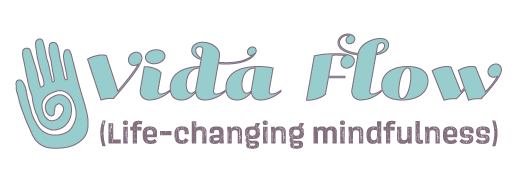"Mindfulness is the awareness that arises through paying attention, on purpose, in the present moment, non-judgementally."
Jon Kabat-Zinn
Everyone can benefit from Mindfulness.
Especially if you:
-
have a demanding job or busy lifestyle;
-
struggle to 'quiet the mind';
-
have trouble sleeping at night;
-
tend to overthink or worry;
-
often experience stress or anxiety;
-
find it difficult to switch off from work-related thoughts;
-
have mental health challenges (or live with someone who does);
-
are struggling after a sudden life change (e.g. breakup, loss, health issues);
-
need to release past trauma, or have PTSD;
-
live with a disability or illness (or are caring for someone who does);
-
have decided you're ready to make a positive change in your life.

Turning up the volume of our senses and turning down the volume of our thinking mind can have a huge impact on our mental state.
By mindfully focusing our awareness on our breath, body, and senses we can instantly feel happier, and more grounded, relaxed and present.
Not only is Mindfulness life-changing - thanks to its countless physical, mental and emotional benefits; but most importantly, it’s so simple and practical to incorporate into our everyday life.
No matter how busy you are, let me tell you it’s 100% possible to practice Mindfulness every day; wherever you are, whatever you’re doing, however you’re feeling.
Mindfulness is a meditation technique. You can ‘meditate’ when you walk, eat, exercise, brush your teeth, cook dinner, or even when you’re at work, or stuck in traffic!
Mindfulness Explained
In the late 1970's Professor Jon Kabat-Zinn, founder and former director of the Stress Reduction Clinic at the University of Massachusetts Medical Center, helped to bring the practice of mindfulness meditation into mainstream medicine and demonstrated that practising mindfulness can improve physical and psychological well-being as well as positive changes in health, attitudes, and behaviours.
ABC Science - Mindfulness explained
What are the benefits of mindfulness?
Mindfulness improves well-being.
Being mindful makes it easier to savour the pleasures in life as they occur, helps you become fully engaged in activities, and creates a greater capacity to deal with adverse events.
By focusing on the here and now, people who practice mindfulness find that they are less likely to get caught up in worries about the future or regrets over the past, and are better able to form better connections with others.
Mindfulness improves physical health.
Scientists have discovered that mindfulness techniques help improve physical health in many ways. Mindfulness can: help relieve stress, treat heart disease, lower blood pressure, reduce chronic pain, improve sleep, and alleviate gastrointestinal difficulties.
Mindfulness improves mental health.
In recent years, psychotherapists have turned to mindfulness meditation as an important element in treating several problems, including depression, anxiety, addictions, eating disorders, couples’ conflicts, and obsessive-compulsive disorder.
Learning mindfulness practice can change every aspect of your life.
Many prominent studies continue to find life-changing benefits of mindfulness and somatic yoga, including a reduction in stress, depression and anxiety; an increase in productivity and work-life balance; and overall feelings of well-being and life satisfaction.
A Mindful, Trauma-Informed approach
Vida Flow Mindfulness follows a trauma-informed and research-based approach, incorporating polyvagal theory, psycho-education and emotional intelligence principles across all sessions and programs.
